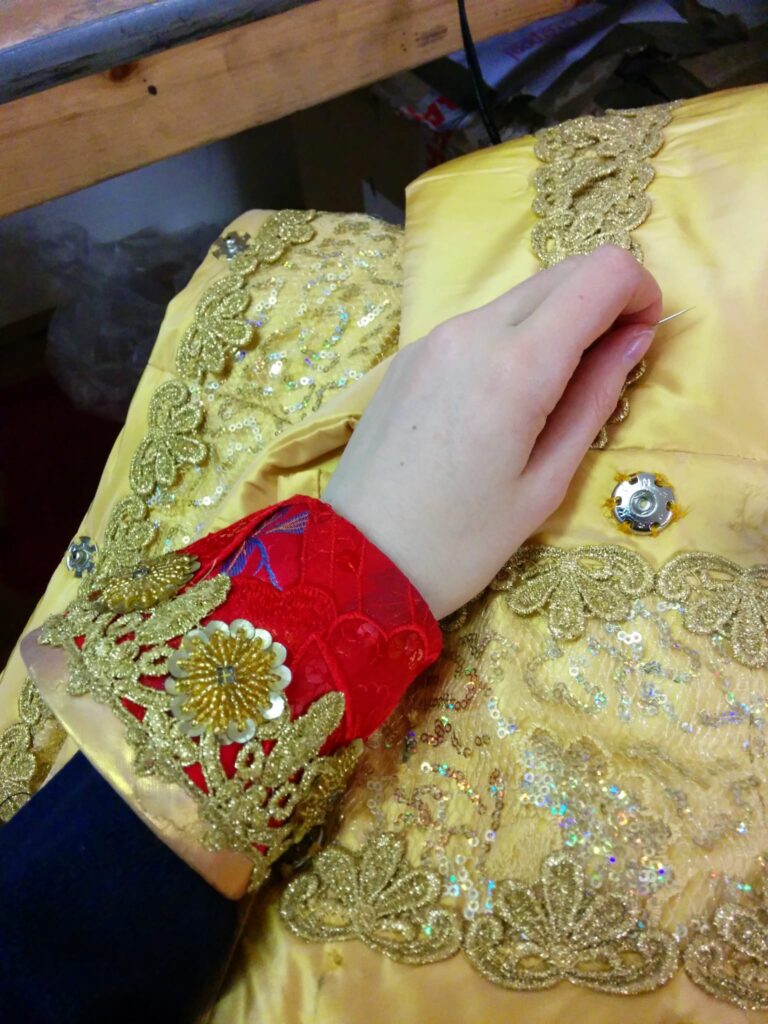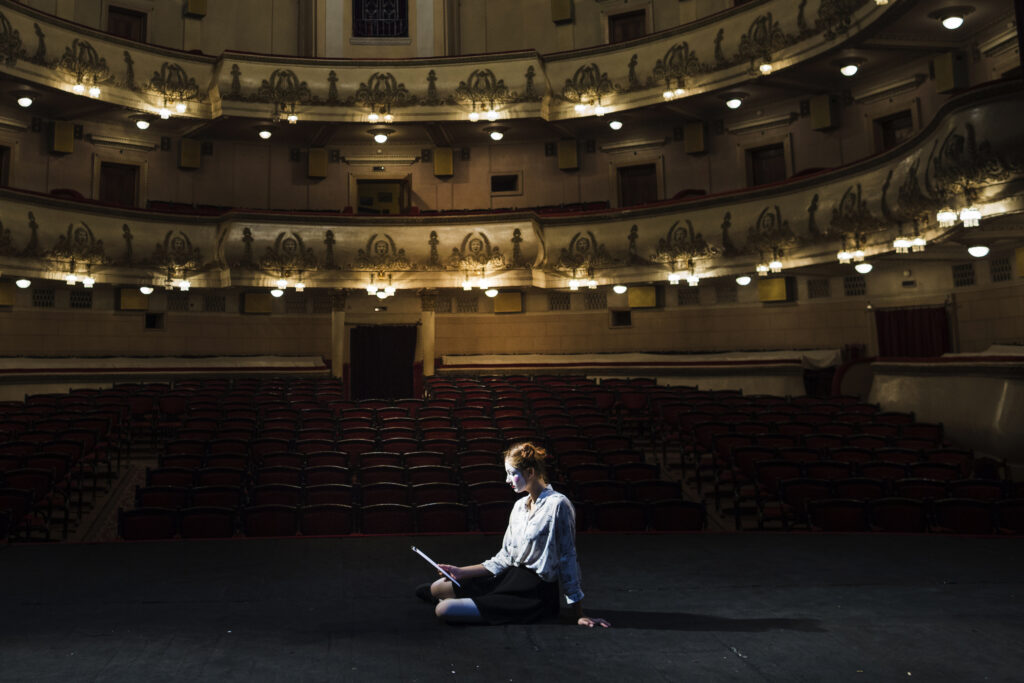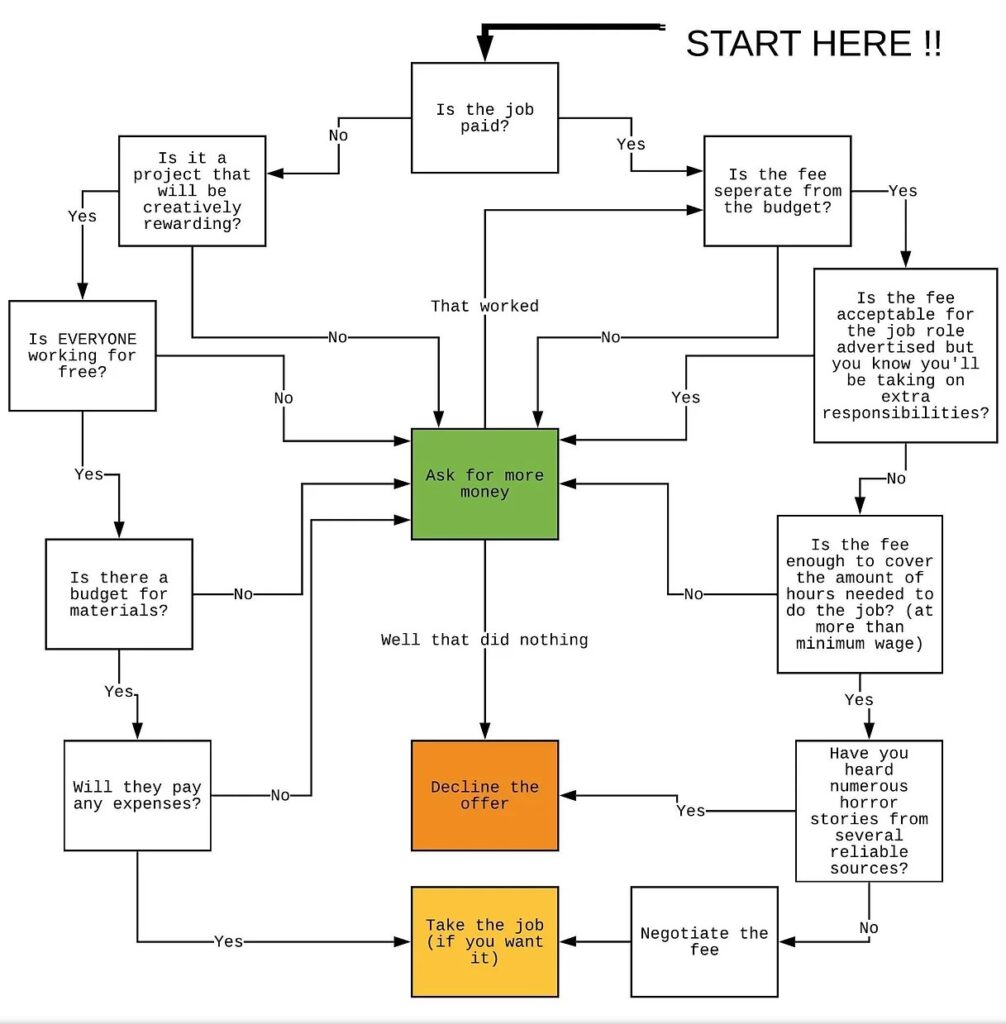Panto Wages

Let’s talk about pantomime wages….this is a great time to assess what you are being paid and think about where you can negotiate next time
HOW TO TAKE A BREAK

I am personally giving you permission to stand up, put down whatever evil thing you are working on, take a breath and walk away. It’s ok, I promise. It will help.
HOW I FAILED AS A HOD

It helps to be liked, it really does, but some people aren’t going to like you, and you aren’t going to like them – and you have to accept that.
SHOULD I TAKE THIS JOB?

Not sure if you the job you’ve been offered is worth it?! Follow this handy flowchart….
THE ART OF NEGOTIATION
Talking about money can feel awkward. But the more you do it the more natural it becomes. But where do you start?
WHAT SHOULD I CHARGE?!
I can’t stress enough how important it is that we all open up about what we are being paid. It is only through being honest and helping each other that we can raise the pay of our entire industry.
HOW TO CHASE AN INVOICE
Showing people that we expect to be paid on time and that we know our rights helps our entire industry and hopefully lowers the chances of people trying this in the future so be strong and fight for what you deserve.
ASKING THE IMPORTANT QUESTIONS
I asked the producers some more questions and did some quick maths and we negotiated a day rate I was happy with…
WORKING AS A WEST END WARDROBE ASSISTANT

Competition for jobs in the arts is staggering; especially for full time positions – with regular pay packets, job security, holiday pay etc. But with so many people vying for a handful of jobs do standards slip? Do larger companies push what they can get away with because they know there’s plenty of other people […]
MY FIRST JOB AS A COSTUME SUPERVISOR

I remember the designer being massively behind with the set so I stayed one night to help paint it. And on opening night everything costume-wise was as ready as it could be, so I asked if anyone needed any help. The FOH manager asked me if I could hoover and then watched me do it. Keen, foolish, underpaid and exploited.
